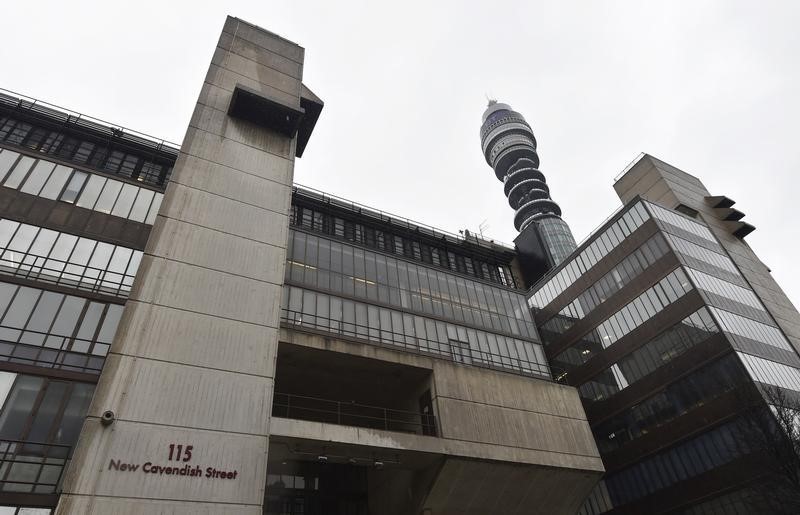LONDON (Reuters) - A combination of BT (L:BT) and EE would provide a major boost to the British digital economy, the telecom giants said on Wednesday, in the opening gambit of what is likely to be a highly contested regulatory battle.
The 169-year-old BT agreed to buy EE (PA:ORAN) (DE:DTEGn) for 12.5 billion pounds ($19.6 billion) earlier this year to bring the country's biggest fixed-line and mobile operators under one roof.
BT Chief Executive Gavin Patterson said the deal would create a national champion with the scale and expertise to meet Britain's future communications needs.
Rivals would benefit rather than be harmed by its size and reach, he said, adding that hundreds of companies used its networks on equal terms, and they would continue to do so.
"We are happy for them to stand on our shoulders," he said.
But rival firms such as Vodafone (L:VOD) and TalkTalk (L:TALK) have raised the alarm, saying BT, which provides network infrastructure to competitors through its Openreach arm, could abuse its dominant position and harm competition.
Broadband provider TalkTalk said the deal needed to be closely scrutinised.
"Quite simply, consolidation leads to reduced competition and a reduced incentive to innovate and, crucially, higher prices – as demonstrated just last month by mobile price rises in Ireland," a TalkTalk spokeswoman said.
Competing operators want regulators to force BT to spin off Openreach, and to see other concessions in areas like spectrum.
In response, BT and EE set out their stall on Wednesday, appealing to the regulator and political leaders to see the potential from the deal and noting that it would take their combined clout and ambition to meet ever-growing demand for data and services.
"A world-leading, combined fixed and mobile, digital infrastructure will sit at the heart of a successful UK economy," said EE Chief Executive, Olaf Swantee. "These competitors only want to put up roadblocks, while we want to build motorways for the UK".
Patterson said Britain needed a digital champion willing and able to invest in ultrafast broadband and 5G.
He said rival companies would be able to benefit and compete through highly regulated, equal access to the Openreach network, and wholesale access to the EE mobile network.
Analysts said the early skirmishes were indicative of the size of the deal and the key role BT plays in the wider market.
"As the deal comes close to finalising, rivals will be calling for lower prices, greater access to BT's network and even a full demerger of Openreach," CCS Insight analyst Paolo Pescatore said.
"While there are merits of BT's acquisition of EE, regulators will be duty bound to listen to the comments of their competitors who will feel less positive about the transaction and the increasing monopolisation of the telecoms sector."
European Competition Commissioner Margrethe Vestager said on Monday she was wary of too many mergers in the telecoms sector, warning that consumers could end up with higher bills and less innovative companies.
"Incumbent operators argue that if they cannot merge with their rivals in the same country they will be unable to increase their investment. I've heard this claim quite often, but I have not seen evidence that this is the case," she said.
"Instead, there is ample evidence that excessive consolidation may lead not only to less competition and more expensive bills for consumers, but that it also reduces the incentives in national markets to innovate."
